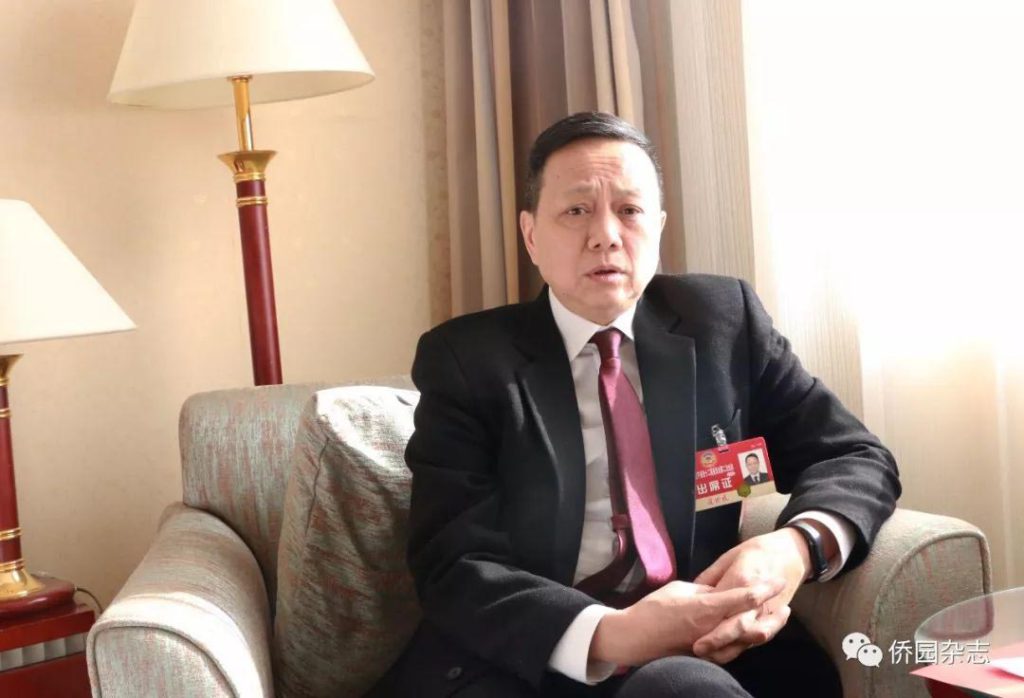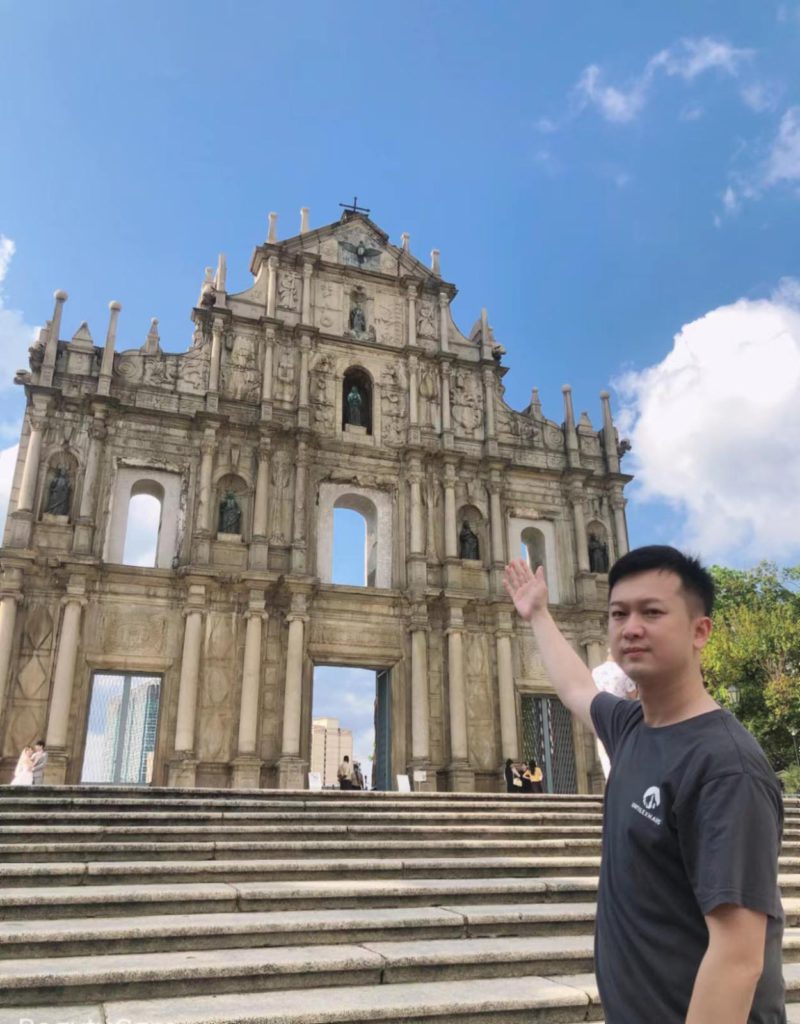The return of group visits does not solve the tourist crisis, explain industry insiders to PLATFORMA. In his opinion, pandemic restrictions continue to be the major obstacle to recovery. There is interest in exploring Southeast Asia in the future, but local guides are not “trained enough”. On the other hand, the Portuguese language is no longer a bet: only two tour guides are proficient and are over 70 years old.
Group tours and e-visa issuance for mainland visitors will return to Macau in early November, as announced by the Chief Executive, Ho Iat Seng. The news, however, did not have a major impact on the industry, as found out by PLATAFORMA. The new measures will take effect in Guangdong, Shanghai, Jiangsu and Fujian, with the daily average of tourists expected to be around 40,000.
The president of the Federation of Tourism Industry and Trade Federation, Leng Sai Wai, says the new measures do not mean a full recovery of the industry.
According to the official, “we must be more attentive to changes in epidemic prevention measures on the mainland”, as “it is not just about the desire to visit Macau, but the possibility of these tourists doing so and whether there is mandatory isolation”.

The association leader looks to the recent outbreak in Zhuhai to set an example, warning that Macau residents themselves may not be able to return to the MSAR if they are in a place affected by the Covid-19 pandemic. This also applies to tourists, he comments, saying that the industry is “not very optimistic” about this relaxation of restrictions.
AWAY FROM THE REST OF THE WORLD
Leng Sai Wan explains that the recent change in pandemic restrictions in Hong Kong has revitalized its transport industry. “We read news about the hiring of new employees by Hong Kong Airlines and concluded that the changes [in epidemic control] make a huge difference to the city’s economy in a short period of time. Macau is largely dependent on consumption from abroad. It is not able to survive on internal capital circulation alone. We need tourists,” he argues.

Analyzing the fight against the pandemic in the last three years, Leng Sai Wai believes that Macau is “disconnected” from the rest of the world. “There are no longer any ferry connections between Macau and Hong Kong and the capacity of buses on the Hong Kong-Zhuhai-Macau bridge has been significantly reduced. Not only are there few timetables, but they also depend on prior appointment. We no longer rely on visits from Hong Kong,” he emphasizes. “The only source of visitors is the Interior. However, according to current policy, Macau still has a long way to go”, he predicts.
The local economy has been in decline since the beginning of the pandemic, with GDP down 56.3 percent in 2020, according to the Directorate of Statistics and Census Services (DSEC). Something that “proves that current epidemic prevention measures are highly harmful to our economy. If Macau maintains a cautious attitude, it will end up in a highly vulnerable position”, he laments.
TOURS CONTRACT COVID-19 POLICY
Leng Sai Wai goes even further, arguing that group tours contradict current epidemic control measures in Macau. The same says that these trips involve gatherings that, in themselves, facilitate the spread of the virus. “The attraction of these excursions is their reduced cost when joining 40/50 tourists to rent a bus. It is an economy of scale. But doesn’t getting these people together on a bus contradict the goal of pandemic prevention?”.
The association leader also indicates that hotel prices are down. “The price of a night in a five-star hotel is only 400/500 patacas. Those who come from the interior are entitled to an offer of ‘two for the price of one’, reducing the original price to 200/300 patacas – much lower than in neighboring regions”, he emphasizes.
“The problem is not the lack of interest in Macau, but the fact that the city is increasingly isolated by the epidemic”.
TOUR GUIDES BECOME RELAYERS
Most tour guides have ended up becoming taxi drivers or couriers as the pandemic has limited tourist activity for the past three years. Many of the tour drivers have migrated to the taxi industry, and the epidemic restrictions “have led to a massive boom in the home delivery industry,” says Wai.
“Choices made to survive,” he says. However, he thinks that the opening of the city provides conditions for them to return to the pre-pandemic professional path: “If it is possible to go back to work as a tourist guide (…) I believe that their return will not be a problem”.

On the scale of the resumption of excursions, he considers that the revitalization of the industry “will not be possible all at once”, since before there were 100 excursions a day.
“A plan must be created for a gradual reopening”, he proposes.
The president of the Macau Tourism Guide Promotion Association, Chong Wai Kit, shares a more optimistic view with the newspaper. The official points out that Macau had more than a thousand tourist guides before the pandemic, a number that has since dropped to 400.
“If it weren’t for the resumption of excursions, the number would not change. It’s better than nothing. During the Golden Week of October 1st we felt more movement. Although the daily average of entries does not come out of the few tens of thousands, incomparable to the 100 thousand entries before the pandemic, the market is feeling some recovery. Small and medium-sized companies are more motivated,” he says.
Chong Wai Kit also says that the controversial extradition law in Hong Kong has seriously affected tours in the special administrative regions. In other words, in his view, the industry went into crisis before the pandemic.
During the pandemic, “the employment of many tour guides was guaranteed thanks to the ‘Tours, gastronomy and stay for Macau residents’ plan.
Many even chose to deepen their studies and take advantage of this context to improve their qualifications. I remember that during the pandemic, for courses in tourist guides and specialized training in cultural heritage at the Instituto de Formação Turística, it was necessary to use a lottery to select the students”.
Chong Wai Kit claims that itineraries focused on food, accommodation and tourism for locals have a positive effect on the industry.
“Before, we received tourists mostly from the interior, and we visited places such as the ruins of São Paulo, the Temple of A-Má, Praça do Lótus and casino resorts. Nor was there much knowledge about local attractions popular with the community. [In this new model] we can develop specialized routes and later recommend them to visitors”.
ONLY TWO TOUR GUIDES SPEAK PORTUGUESE
Although it remains one of Macau’s official languages, only two tour guides speak Portuguese and both are over 70 years of age. Chong Wai Kit criticizes the local tourism authorities, saying that the training of tourist guides in several languages is not given due importance.
“I got in touch with both of them and they are both concerned about the lack of talent capable of replacing them.” Recognizing that the tourist market in Macau will continue to be dominated by individual tourists, it is quite likely that these tours will need to be extended to foreign tourists.
“In the future we may open some tours to Southeast Asia, but we still don’t have enough training.”



